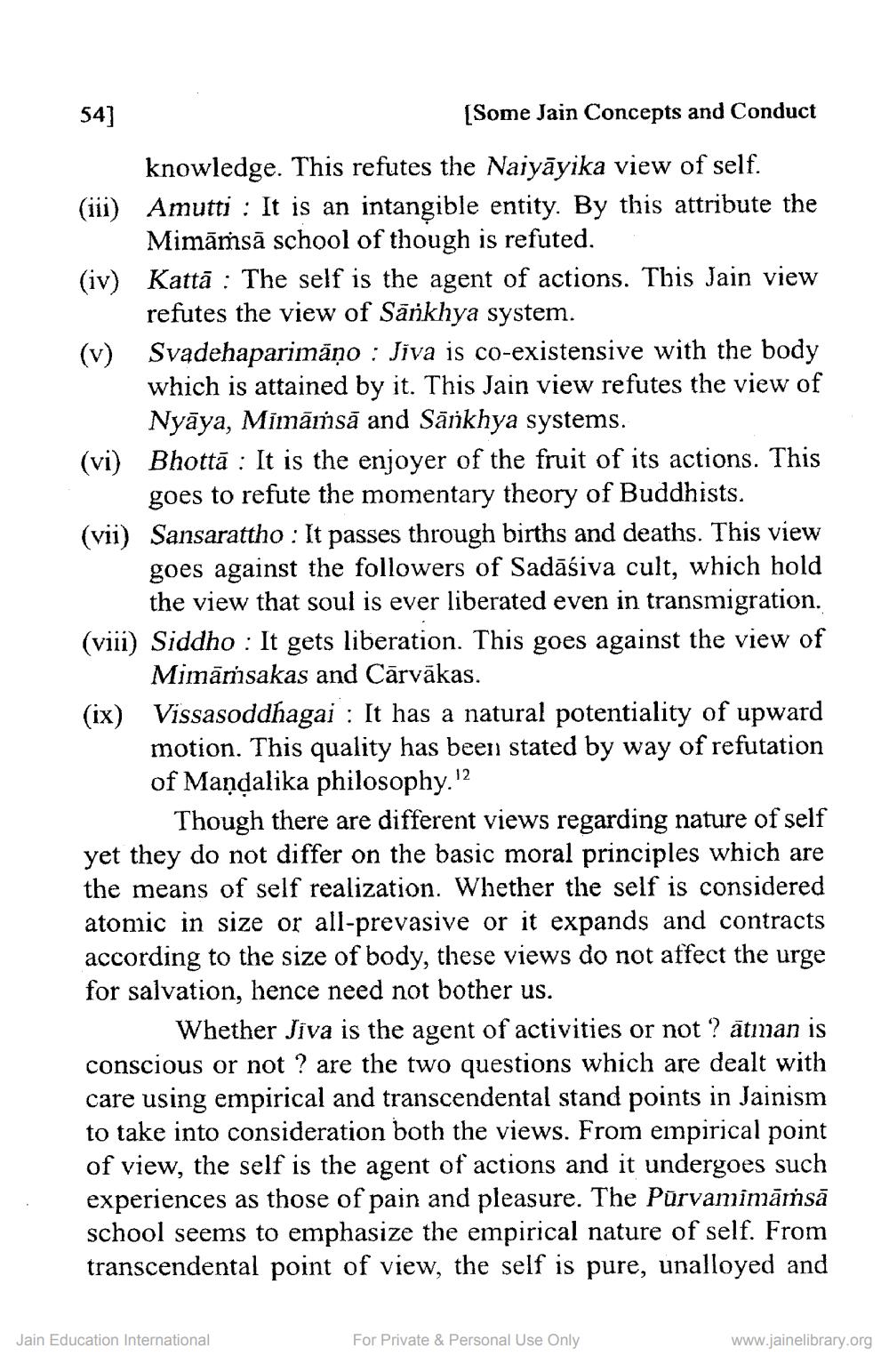________________
54]
[Some Jain Concepts and Conduct knowledge. This refutes the Naiyāyika view of self. (iii) Amutti : It is an intangible entity. By this attribute the
Mimāṁsā school of though is refuted. (iv) Kattā : The self is the agent of actions. This Jain view
refutes the view of Sankhya system. (v) Svadehaparimāņo : Jiva is co-existensive with the body
which is attained by it. This Jain view refutes the view of
Nyāya, Mimāṁsā and Sankhya systems. (vi) Bhottā : It is the enjoyer of the fruit of its actions. This
goes to refute the momentary theory of Buddhists. (vii) Sansarattho : It passes through births and deaths. This view
goes against the followers of Sadāśiva cult, which hold
the view that soul is ever liberated even in transmigration. (viii) Siddho : It gets liberation. This goes against the view of
Mimārsakas and Cārvākas. (ix) Vissasoddhagai : It has a natural potentiality of upward
motion. This quality has been stated by way of refutation of Mandalika philosophy.'2
Though there are different views regarding nature of self yet they do not differ on the basic moral principles which are the means of self realization. Whether the self is considered atomic in size or all-prevasive or it expands and contracts according to the size of body, these views do not affect the urge for salvation, hence need not bother us.
Whether Jiva is the agent of activities or not? ātman is conscious or not ? are the two questions which are dealt with care using empirical and transcendental stand points in Jainism to take into consideration both the views. From empirical point of view, the self is the agent of actions and it undergoes such experiences as those of pain and pleasure. The Pūrvamimāṁsā school seems to emphasize the empirical nature of self. From transcendental point of view, the self is pure, unalloyed and
Jain Education International
For Private & Personal Use Only
www.jainelibrary.org




